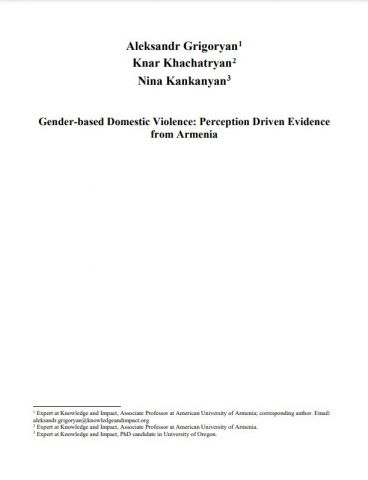In this paper, we focus on distinguishing features of gender-based domestic violence in Armenia, one of the post-Soviet states. We explore the attitudes towards different forms of IPV. For this purpose, we use a household-level country-representative dataset from Armenia.4 In the survey, respondents reveal their perception of several forms of violence, which can be grouped into (i) physical abuse, (ii) emotional abuse, and (iii) restrictions. We refer to domestic violence as IPV, whereby the physical force or psychological abuse is inflicted onto a person by an intimate partner or another member of a household, intended to cause humiliation and intimidation (WHO, 2012). In the study, we also bring evidence from an Armenian NGO experience on distinct cases of gender-based violence in Armenia. The pieces of evidence, data- and experience-driven, enable to draw conclusive statements and elaborate on the directions of policy reform.

